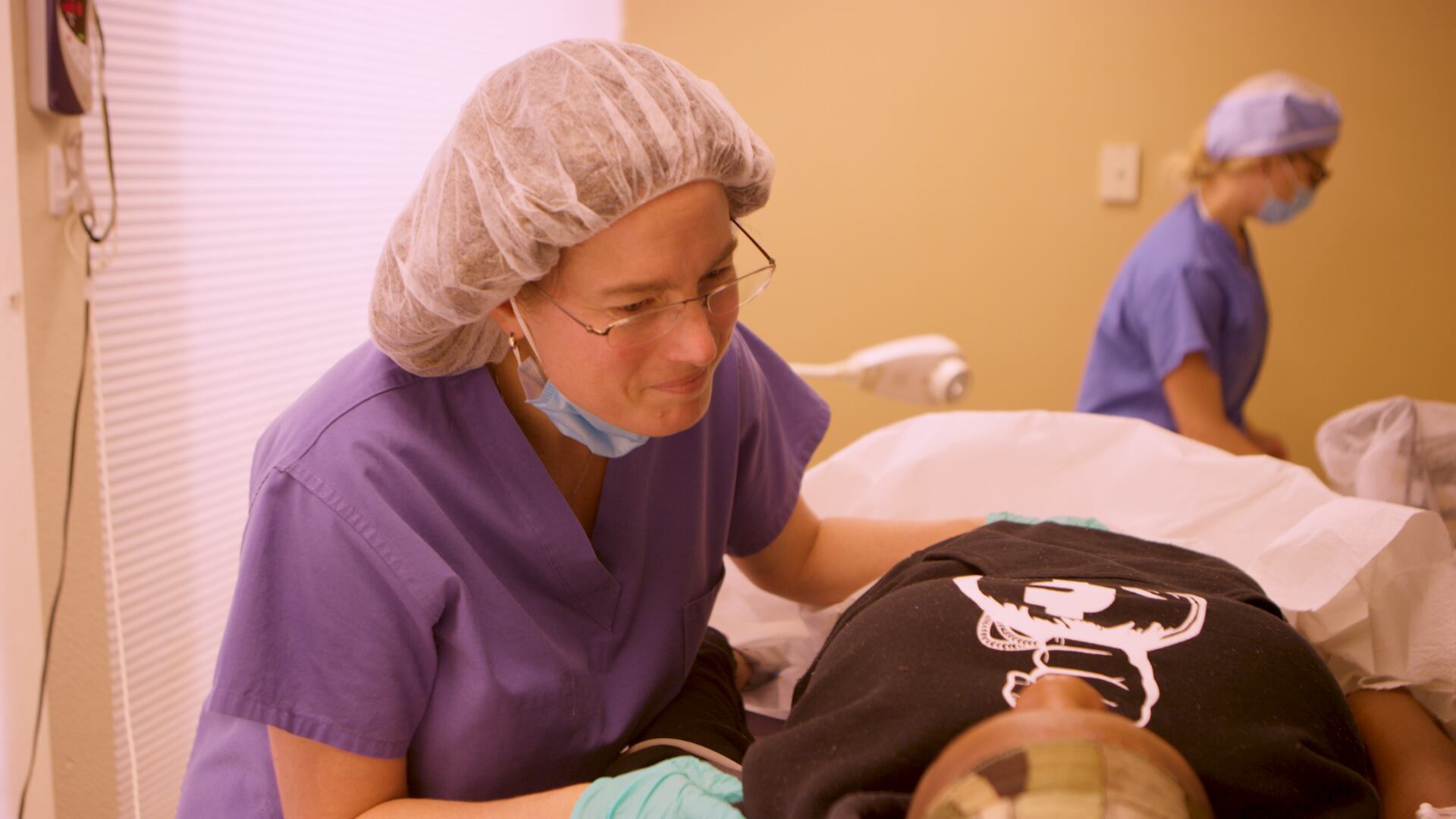When Our Bodies, Our Doctors screens at the Hollywood Theatre on Sept. 10, it’ll play in a different landscape for reproductive rights than the one in which it was filmed four years ago.
After the U.S. Supreme Court overturned Roe v. Wade last June, some of the very clinics highlighted in the documentary by Portland filmmaker Jan Haaken (specifically those in Oklahoma) were banned by state law from providing abortions.
Now, Haaken says, there’s increased urgency for clinics in pro-choice states to handle the influx of patients arriving from elsewhere. She describes Oregon and Washington women’s health clinics as currently “swamped”—part of why the Sept. 10 screening is a benefit for the Lilith Clinic, which opened last year in downtown Portland.
“The cruelty and animating obsessions of the hardcore anti-abortion movement are being exposed now,” says Haaken, who’s also recently directed the documentary series Necessity (about climate protests) and has another film underway (about small modular nuclear reactors).
Context aside, Our Bodies, Our Doctors doesn’t set out to paint in broad strokes the national state of abortion rights. Rather, with a clear, grounded focus on providers, the film lays bare the procedure in clinical settings from Seattle to Wichita. Haaken’s camera is most often found looking over a patient’s shoulder, attempting to destigmatize by capturing the steps, standards and bedside manner of abortion care.
“I wanted to push against a narrative from the era of the back-alley abortions—that these are grotesque and messy events [done] by smarmy characters,” Haaken says. “These procedures are not that different from any time you go in for a procedure. These are people trained to follow a set of medical guidelines.”
Nearly a dozen women consented to have their abortions shown in Haaken’s film, something she found “surprising and moving.” The director herself, though, is no stranger to the front lines of women’s health. A clinical psychologist and Portland State University professor emeritus, she began her career as a nurse in Seattle and also worked at the Feminist Women’s Health Center in Los Angeles.
Given that experience, Haaken sought to explore the patient-provider nuances she says even the pro-choice movement is sometimes wary of discussing, for fear of offering any new fuel to anti-choice activists. The film repeatedly normalizes, for example, the painful but temporary cramping that can occur in the aftermath of a procedure.
“The uterus is the strongest involuntary muscle in the body,” Dr. Deb Oyer tells one of her patients in the film. “While it’s not comfortable, it actually means your uterus is doing exactly what we want it to be doing.”
Likewise, Haaken says, some patients obviously experience emotional distress around the decision to terminate a pregnancy, but she rejects “the notion that sadness is the same as trauma” and emphasizes that patient experiences and clinic methodology are not “monochromatic.”
Moreover, in a post-Roe world—where access to abortion has already been banned at or before six weeks in 14 states—Haaken sees shades of hope in the medical community itself. She says policies requiring obstetrics and gynecology students to receive abortion training (unless they opt out) demonstrate the unprecedented influence of women and feminists within academic institutions.
“That represented a sea change in mainstream medicine,” she says. “It’s very different than when I was young as a nurse and doctors ruled. There was a kind of kingly authority that the position had.”
On Sept. 10, Haaken will be joined in a post-screening Q&A by abortion rights activist Sierra Romesburg, obstetrician-gynecologist Andrea Chiavarini, and Judith Arcana, a Portland writer and activist who appears in Our Bodies to discuss her years in “The Service,” an underground network of abortion services in the 1960s and ‘70s. Comparing those pre-Roe years to 2022 and beyond, Haaken doesn’t see a one-to-one match but emphasizes history’s potential utility.
“We’ve made a lot of gains since that period,” Haaken says. “Women are in the medical profession in dominant roles, which was not the case then. There is widespread support for the rights of women, which was not the case then. But ‘The Service’ is important in terms of creativity, coordination, minimizing risks and being thoughtful. Some of those lessons are very relevant to the period ahead.”
SEE IT: Our Bodies, Our Doctors screens at the Hollywood Theatre, 4122 NE Sandy Blvd., 503-493-1128, hollywoodtheatre.org. 2 pm Saturday, Sept. 10. $8-$10.

